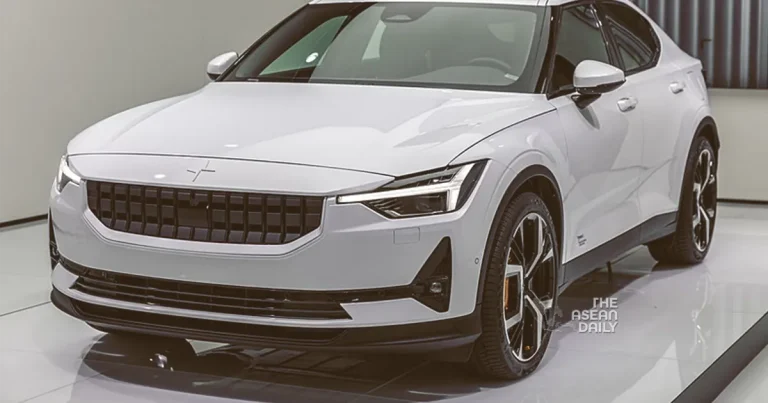3-11-2023 (SINGAPORE) Starting in 2024, a fleet of 19 electric Polestar 2 saloons will take to the expressways of Singapore for patrol duty. The Traffic Police (TP) selected the Swedish car model from a pool of bidders in a public tender that began in October 2022 and concluded on January 31, 2023.
Among the contenders were South Korea’s Hyundai Ioniq 5 (jointly submitted by Hyundai agent Komoco and Hyundai Motor Group Innovation Centre Singapore), China’s BYD Seal, and Germany’s BMW i4 and iX1 (all submitted by Malaysian motor group Sime Darby). However, the winning bid of approximately $3.8 million came from Wearnes Automotive, the local agent for Polestar. This bid includes a 10-year maintenance program for the vehicles. The bid values of the other contenders were similar, except for Hyundai’s bid of around $1.9 million, which did not include the maintenance component.
The selected Polestar 2 variant is the dual-motor all-wheel drive model, capable of accelerating from 0 to 100km/h in 4.5 seconds and reaching a top speed of 205km/h. Equipped with an 82kWh battery, the vehicle offers a range of approximately 470km on Singaporean roads, assuming it is not engaged in repeated high-speed pursuits.
These specifications surpass the minimum requirements specified in the tender, which called for vehicles capable of reaching 100km/h within 8 seconds and having a battery capacity of at least 60kWh.
According to sources, the initial delivery of Polestar cars is expected in 2024, replacing the aging highway patrol vehicles from brands such as BMW, Subaru, and Volvo. These new cars will be the first electric vehicles to bear the Traffic Police expressway patrol livery. Previous patrol vehicles included the diesel BMW 325d, as well as petrol-powered models such as the Subaru WRX, Volvo S40, and Volvo S80.
The tender also includes an option for an additional three Polestar vehicles, potentially increasing the electric fleet to 22 cars.
Before being put into service, the cars will be equipped with police equipment and accessories, requiring a significant portion of the tender value to be allocated for retrofitting.
The TP’s decision aligns with Singapore’s efforts to transition to cleaner energy vehicles in order to reduce emissions. The government aims to prohibit the registration of new pure combustion engine cars by 2030 and have all vehicles running on cleaner energy by 2040, although the exact definition of “cleaner energy” remains unclear.
It is reported that other police departments are also exploring the adoption of electric vehicles, including all-wheel-drive seven-seaters, a rare configuration in the electric segment.
Several law enforcement agencies in other countries have already incorporated electric vehicles into their fleets. In 2019, the Australian state of Victoria purchased a Tesla Model X for highway patrol duties. Similarly, various jurisdictions in the United States, such as New York City, have added EVs to their fleets, with the city ordering 184 Ford Mustang Mach-Es. London has also conducted trials with a fleet of Tesla Model 3s, as reported by The Guardian in 2021. The British police recently introduced the Polestar 2 to their fleet, albeit the pre-facelift version, unlike the facelifted version that Singapore will receive.




